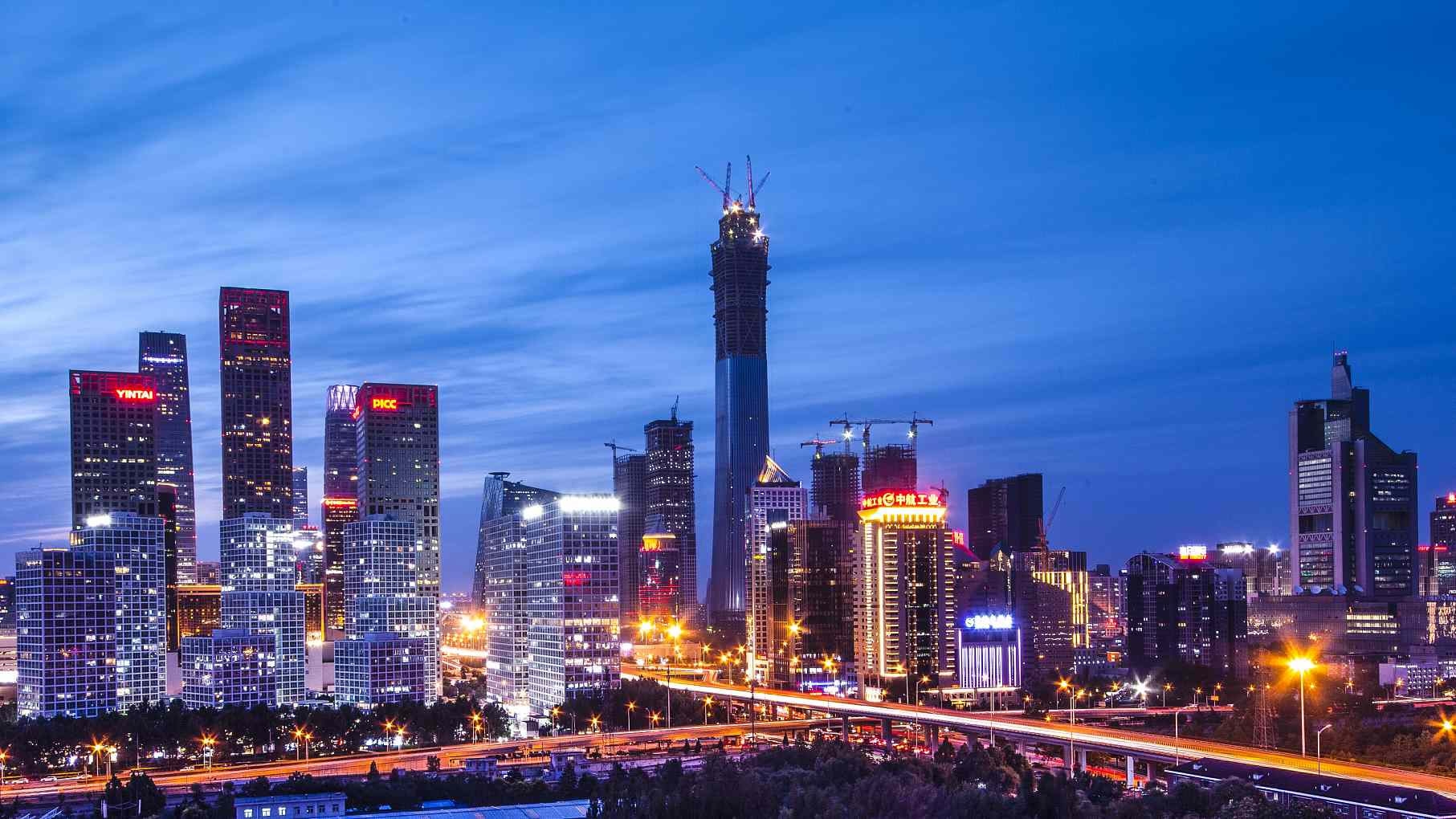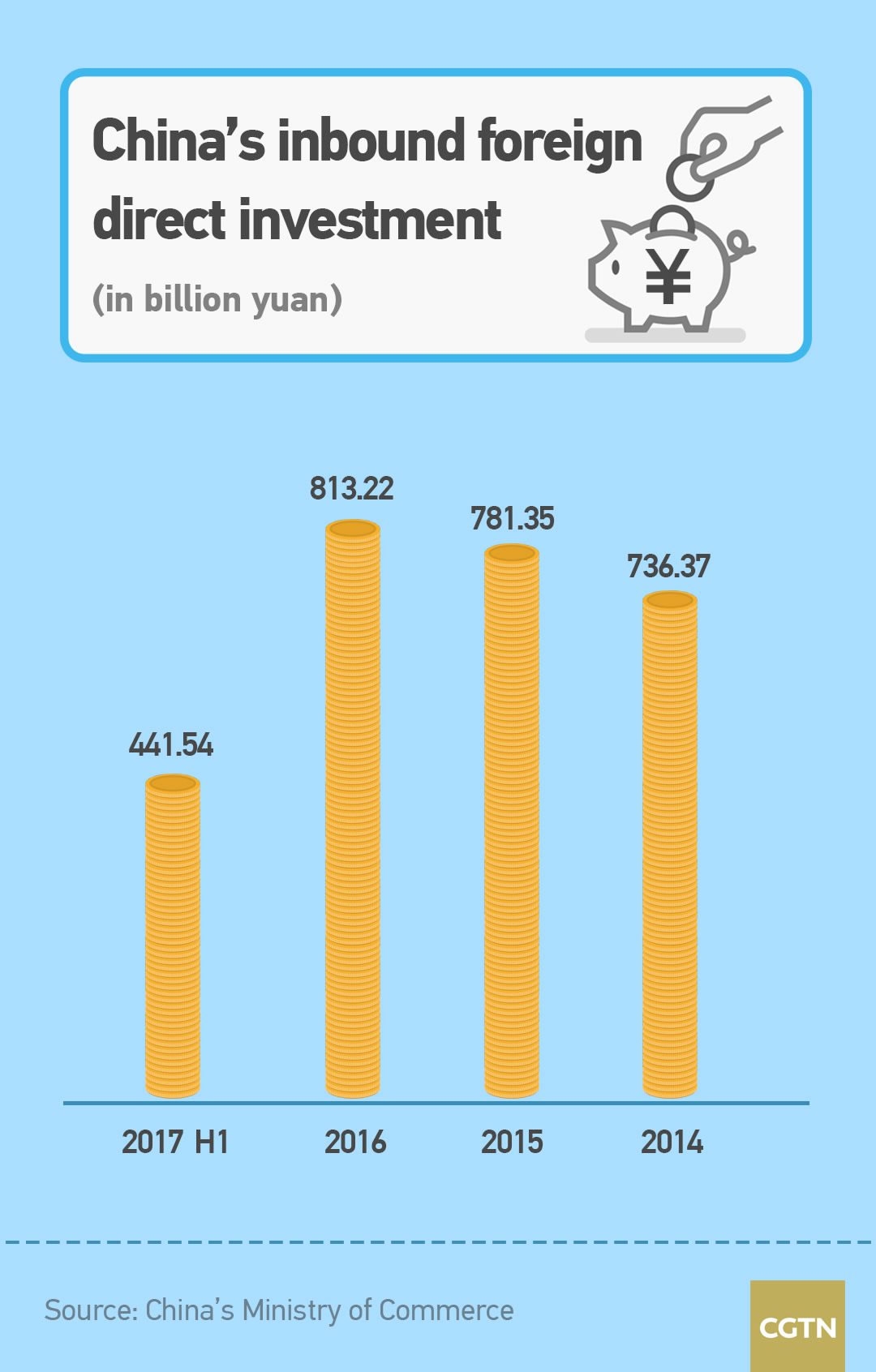
Business
21:05, 08-Aug-2017
China increases appeal for foreign investment with new reforms

At a time when global trade protectionism is on the rise, China is continuing its efforts to open up and attract foreign investment, as the country welcomes a wide range of structural reforms.
China should create "a stable, fair, transparent and predictable business environment," and quicken efforts to build an open economy with sustainable and healthy development, according to a meeting of the Central Leading Group on Finance and Economic Affairs in July.
Simplified procedure for foreign investment
After about 30 years of high-speed economic growth, China’s inbound foreign direct investment (FDI) fell 0.1 percent year-on-year to 441 billion yuan (66 billion US dollars) in the first half of this year.
However, data showed Chinese market is still appealing to foreign investors.

The number of new foreign enterprises in China in the first six months was up by 12.3 percent, according to data from China’s Ministry of Commerce.
An American Chamber of Commerce report said 77 percent of US companies in China remained profitable last year, up 6 percentage points from 2015, and 73.5 percent reported revenue growth, up 12 percentage points from 2015.
To further attract foreign investment, China made more efforts in opening up more sectors and easing restrictions on foreign businesses.
Starting on July 28, China implemented a revised foreign investment catalog, which includes a "negative list" approach that identifies sectors and businesses that are off-limits or restricted for investment, as well as sectors and industries that the government wants to encourage foreign companies to invest in.
The catalog shortens the list of sectors that are completely off-limits for foreign investment from 36 to 28.
In the southwest China’s Sichuan Province, where a free trade zone was launched this April, instead of lining up to submit paperwork, foreign investors now only need to upload files online to establish a company or make alterations on existing ones.
Today, over 95 percent of new foreign enterprises in China do not need government approval before they are set up, and registry procedures take less than three days, compared with more than 20 days previously.
More opportunities offered by structural reform
China also expects inbound investment to play a larger role in its economic development, promoting the growth of new sectors and driving supply-side structural reform.
The FDI inflow into high-end sectors has been robust. In the first half of this year, the high-tech manufacturing sector saw FDI up 11.1 percent to 34.97 billion yuan, while foreign investment in high-tech services rose 20.4 percent to 64.72 billion yuan.
Compared with the initial stage of China's reform and opening up nearly 40 years ago, China is more consciously choosing the types of "investment" or "professionals" it wants to attract, said Zhang Jianping, a researcher with the Ministry of Commerce.

Participants at a job fair for international professionals in Beijing in November, 2016. / ACG Photo
Participants at a job fair for international professionals in Beijing in November, 2016. / ACG Photo
To make China more appealing to talents outside the country, the government will put in place a work permit system for foreigners working in China to streamline their working permit application procedures, expand visa issuance and extend visa expiration dates.
The introduction of the new system, together with a number of other measures, is expected to implement by the end of September, according to a State Council meeting late last month.
(With inputs from Xinhua)

SITEMAP
Copyright © 2018 CGTN. Beijing ICP prepared NO.16065310-3
Copyright © 2018 CGTN. Beijing ICP prepared NO.16065310-3